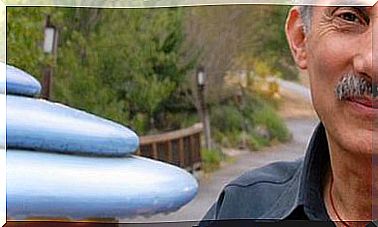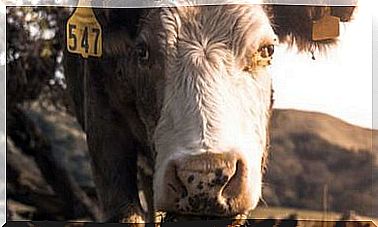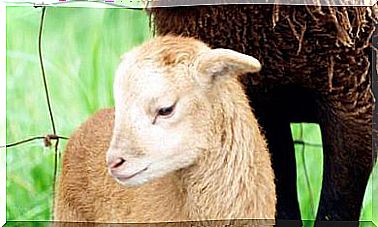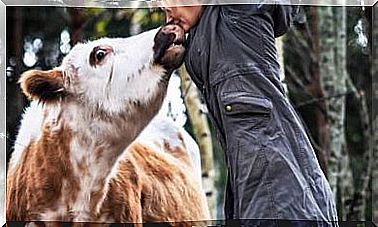“You Pay For Meat 3 Times: When You Buy It, With Taxes And When Treating Its Secondary Effects”
In his book The meat that we eat, Philip Lymbery explains with solid data and arguments why livestock Industrial damages health and the planet.
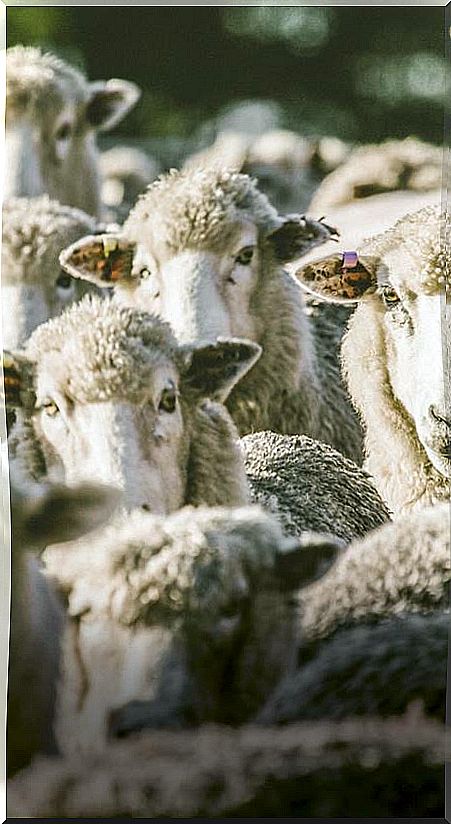
Three times a day, Philip told me, three. And throughout the interview, he repeated it to me several times … He would look me straight in the eye and repeat again, “three times a day … that’s many times.” I wish we had three opportunities (with each meal), to be able to rectify some decisions throughout our lives.
In The Meat We Eat (Editorial Alliance), Philip Lymbery tells how factory farming and the decisions we make when it comes to feeding ourselves are responsible for ecological disaster, the deterioration of our health and animal suffering.
It is difficult to believe that a feeding system, practiced for so many years, is so harmful …
“Factory farming is the result of many years of government policies”
– Are there still too many people who doubt the repercussions of meat consumption on health?
—I think that questioning the amount of meat we eat begins to be something that people accept, not only in specific media that are more sensitive to this information, but in general.
But there are also people who are not yet aware of the real costs of cheap meat. We pay it several times: when we buy it, through our taxes (for aid to industrial livestock) and with the costs to resolve the effects that this livestock has on the environment and human health.
To all this should be added animal suffering, which is not accounted for in money …
“I’ve read your book and checked its sources.” References belong to prominent researchers and organizations within the scientific community. With all the warnings from the experts, how could there not be better regulation?
—I think it is largely due to the fact that the roots of factory farming go back more than fifty years.
Factory farming is the result of many years of government policies. From large public aid to the sector, which is driven by large companies that are earning many millions of dollars. Feed, veterinary drug and agricultural machinery companies that make great profits by perpetuating this type of livestock.
But we are faced with the problem that there are more than one billion hungry people in the world.
“If we want to end hunger in the world we must fight with the mega industrial farms”
– And what is the proposal of these powers to solve it?
—The governments and these big companies say that we continue like this, that we produce more, more mechanized, more industrial and faster… because they have their own interests.
But what I want to make clear is that the only solution is to completely change this production model, because continuing with the one we already have can only mean that the food system will end up exploding sooner than we think.
“Have you ever felt questioned by your activity?”
-Of course! All the time. I am questioned by the commercial interests that defend industrial livestock.
My organization, CIWF (Compassion in World Farming), does not have an easy path. We work against the large industrial livestock employers around the world, who argue that what we say is not true.
But little by little, without losing ground, the truth is known. People are beginning to know that food from factory farming is not respectful of animals, it is not sustainable and, of course, it is not healthy.
If we want to end hunger in the world, the best we can do is fight this type of livestock, because increasing the number of mega farms can only make the situation worse. It is a huge problem that affects us all, all over the world, all economic classes, all human beings, all animal species and, of course, the planet.
“We can change our habits to create a better world”
“Who is really responsible for this situation?” Lobbies, governments or consumers?
– I believe that the governments must assume the problem.
We are faced with environmental degradation, animal cruelty, public health problems derived from industrial feeding and a reduction in the quality of food. Governments have paid too much attention to the interests of pharmaceutical companies, agrochemicals and suppliers of products to the agricultural world.
But, undoubtedly, consumers can choose what we eat and we have a fundamental role in this process.
– What solution do you propose within the reach of the consumer?
—In my book I not only expose the problems, but also the solutions. It is a story of hope, because it explains how we can change habits to create a better world.
Three times a day… through the choices we make, when we decide what we are going to eat each day.
-What is your next project?
—I am releasing my new research, Dead Zone (“dead zone”, published in English by Blooomsbury publishing house).
I analyze the problems of industrial agriculture through the wild animal species that are in danger of extinction. The impact on jaguars, penguins, elephants …
And again with more data, with new information and above all with solutions through the choices we make every day.
Philip Lymbery has traveled the world researching and documenting the consequences of factory farming. He is executive director of the international organization for animal welfare Compassion in World Farming (CIWF).
Energetic and critical of abusive practices with animals, his campaigns have contributed to important legislative victories, such as the ban on battery cages for hens and calf cages in the European Union.
